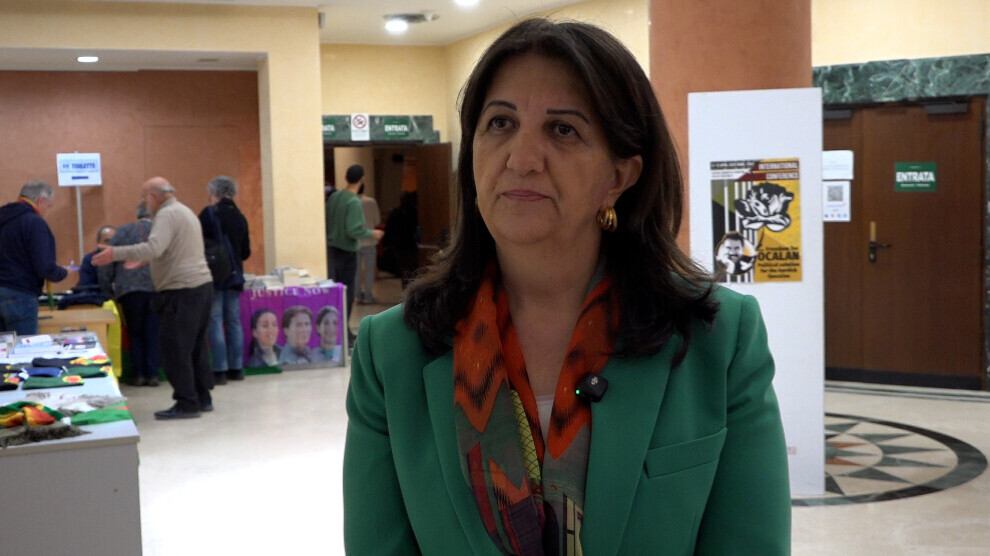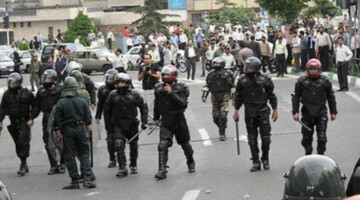The discussions about a new political process, which began following a call by MHP chair Devlet Bahçeli last October, continue. A long-anticipated meeting that was expected to add momentum to the process has now taken place, between the Imrali Delegation and President Tayyip Erdoğan.
Pervin Buldan, a member of the Imrali Delegation, spoke to ANF about the meeting.
This meeting with Erdoğan was seen as a key step in the ongoing process. What are your observations?
For the first time, the President has accepted a meeting with the Imrali Delegation. We’ve had discussions going on for quite some time. We had spoken with political parties, but as someone who should be at the center of this matter, the President had remained distant and hadn’t spoken publicly. There were expectations from all sides. This meeting clarified things. He accepted the delegation, we exchanged views. He listened to what we had to say, took our suggestions seriously, and took ownership of the process. We’ve said that Abdullah Öcalan has shown resolve and will to own the process, and we saw a similar commitment from the government. This makes it a historically important meeting.
Was Erdoğan’s previous distance from the issue addressed?
We didn’t ask why he stayed away for so long, and he didn’t offer an explanation. We suspect he wanted to see how things would unfold. There were concerns based on what happened after the 2015 process. Once he saw that progress was possible, he took a central role. That’s our interpretation.
Where are we in this process? There's no timeline, but what stage are we at?
There’s no official timeline, but we’ve been consistently expressing what needs to be done, and the government is aware. Notes have been taken during meetings with Öcalan, and state officials are involved. These discussions are likely to be conveyed to the President. So nothing here is entirely new. There are many issues, legal regulations that need to be passed. Instead of listing them, we expressed the need for a legal framework. They weren’t opposed to this. But there are no clear details yet.
Did the idea of meeting with the Minister of Justice come up during the meeting with Erdoğan?
No, we initiated that ourselves. It wasn’t something we discussed with the President. Later, we held an internal meeting and decided it was urgent to meet with the Minister of Justice.
Why the urgency?
Because there are legal steps that must be taken. We want to consult and move forward. If there are potential obstacles to peace, we need to remove them. It’s about avoiding pitfalls.
There has been talk of possible sabotage or intervention in the process. What's your view on that?
We live in a region full of dangers. In 2015, we were burned by such risks. To avoid a repeat and ensure the process isn’t derailed, we must eliminate those risks.
Don't practices like trustee appointments (kayyum), the sentencing of Istanbul Mayor Ekrem Imamoğlu, and repression of democratic voices harm the process?
Democratic steps are essential. And not just from the Ministry of Justice—opposition party leaders and Parliament must also take responsibility. This is not just a DEM Party or Kurdish issue; it concerns all 85 million people in Turkey. That’s why all political actors must contribute. We plan to meet with many parties and actors. If we meet with the Justice Minister soon, we’ll discuss what needs to be done. We’ll share our ideas, and they’ll share theirs. Talks with other political parties will follow. A visit to Imrali is also necessary, a meeting with Öcalan must happen. If steps are taken swiftly, this process could be completed in a few months.
When you say 'a few months,' do you mean by June?
Yes, if steps are taken quickly, the process could be completed by June.
What would constitute a 'completed' process?
Necessary laws would be passed, the PKK could declare its disbandment if conditions mature, and a congress is convened. If the government does its part and passes these laws swiftly, we could then speak of a completed process.
Is there any draft or concrete work being done on these laws?
Yes, there is work both on our side and within the government, but we’re not disclosing it yet.
Some say this peace process might delay or overshadow the democratic struggle. What's your response?
The struggle for a democratic society never ends. When one battle ends, another begins. We’ll continue to fight for new laws, for steps to be taken. In a country where women are killed daily, where children are murdered, like in the case of Narin, the struggle against this mindset will continue. The Call for Peace and Democratic Society is itself a call for struggle. Spreading this call and socializing it is part of that. Nothing matures in isolation. Attacks on Istanbul’s municipality are unacceptable. Just as we oppose a trustee in Hakkari, we also oppose interference in Istanbul. What can counter all of this is democratization—the struggle for democracy. Making that real is our shared duty.














